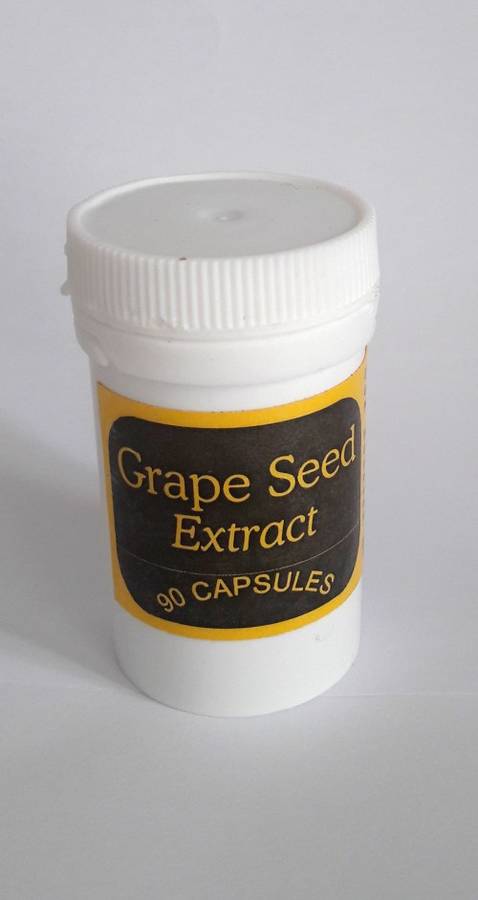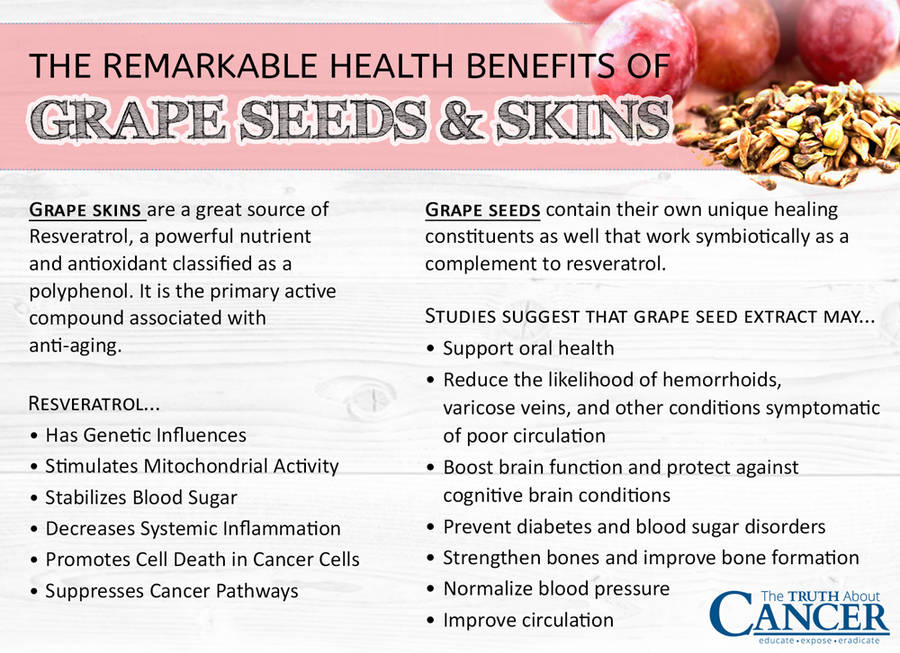
| Main centres: | 1-3 business days |
| Regional areas: | 3-4 business days |
| Remote areas: | 3-5 business days |
Grape seed extract
(95% Proanthocyanindins) 100mg
1 - 3 Capsules per day with meals
QUOTED sections from
The main antioxidant nutrients are vitamins A, C and E, beta-carotene, and the minerals selenium, zinc, copper and manganese. A lesser-known but extremely powerful antioxidant is the proanthocyanidin complex found in pine bark and grape seed extract.
Extensive research* has shown that proanthocyanidins are not only of the most powerful antioxidants available today, but can play a significant role in preventing diseases. This complex is so powerful because it’s a mixture of several types of antioxidants that function effectively in different regions of the body.
It also has the ability to cross the blood-brain barrier to directly protect brain cells against free radicals. Few dietary antioxidants have this capability.
Other benefits of proanthocyanidins are:
The fact that the proanthocyanidin complex is so powerful and versatile does not mean that it is the only supplement you should take. Antioxidant nutrients work together as a team and for adequate protection we need a variety of vitamins and minerals in our diet to keep us healthy.
Studies suggest that grape seed extract may help:
 Some studies have also found that grape seed extract may help prevent the growth of various types of cancer cells, including those of the breast, stomach, prostate, lung, and colon, at least in vitro. The University of Maryland Medical Center, while offering the caveat that test tube studies aren’t necessarily indicative of efficacy in humans, admits that GSE could eventually prove to be a powerful anti-cancer medicine, and I’m of the persuasion that they’re right.
Some studies have also found that grape seed extract may help prevent the growth of various types of cancer cells, including those of the breast, stomach, prostate, lung, and colon, at least in vitro. The University of Maryland Medical Center, while offering the caveat that test tube studies aren’t necessarily indicative of efficacy in humans, admits that GSE could eventually prove to be a powerful anti-cancer medicine, and I’m of the persuasion that they’re right.
One study out of Austria that looked at the effect of OPC on prostate cancer cells found that these nutritive substances are both anti-proliferative and pro-apoptotic, meaning they stop cancer cells from spreading and cause them to commit suicide. Another study out of South Korea found OPC exerts the same anti-proliferative and pro-apoptotic effects against colorectal cancer cells.